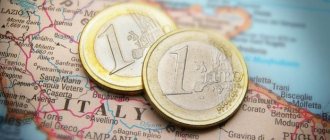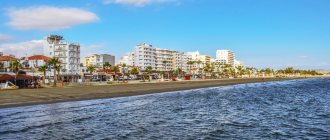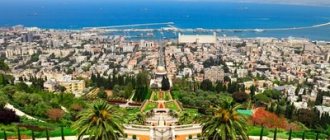Standard of living in Cuba
Cuba has been a socialist country for many years, and during this period it has lost ties with many world partners. The transition to socialism occurred in the 60s after the revolution, at that time power belonged to the Communist Party, led by the revolutionary Fidel Castro. At the very beginning of his reign, radical reforms were carried out in the agricultural sector, the nationalization of industrial facilities and social transformations were carried out. Not all Cubans supported the leader; many immigrated to the United States for this reason - in turn, the American Government offered political asylum.
In 1966, a special document on the emigration of Cubans called the “Cuban Act” was developed, under its terms 2 million Cuban residents migrated to Miami. From that moment on, Cuba officially ended relations with the United States, largely due to the embargo. According to statistics, today 1.5 million Cubans live in the state of Florida - and this is the largest diaspora abroad.
Fidel Castro needed support, and gradually began to strengthen partnerships with the USSR and Latin countries, where goods were later exported and from where imports were imported. Before the collapse of the USSR, relations between states were stable, but the collapse of the Soviet Union led Cuba to another financial crisis. Despite the transition of Russia and other CIS countries to a market economy, Fidel Castro refused to take part in this and continued reforms to take root socialism. Subsequently, this made the state one of the weak and backward in the world economy.
Today, in view of recent events: the death of Fidel Castro in 2016 and the departure of Raul Castro’s younger brother from the main position of government, the party is returning the post of President and Prime Minister. Open elections are held, in which Díaz-Canel Bermúdez wins, and since October 10, 2021 he has been the current President. Realizing that Cuba is in distress, he decides to make radical changes in laws regarding free trade, private sector development, and investment policy. This is the beginning of a new era. Experts predict in the near future a sharp jump from a weak economy to a developing one. Such prospects give hope to foreigners who want to move to the “Island of Freedom.”
The main profits in Cuba come from the tourism industry, the production of nickel, sugar, luxury cigars, the banking sector is gradually developing, and oil rigs are being built. GDP is $97 billion per year, per capita accounts for $6665, annual growth in GDP is 2.2%. The standard of living is not high. If you are seriously considering emigrating here, you should analyze the pros and cons of the move.
Pros and cons of emigrating to Cuba from Russia in 2021
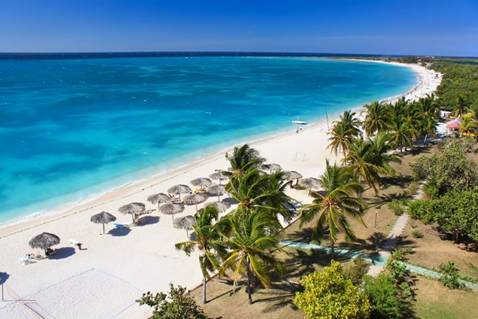
Firstly, the advantages include the fact that there is a Russian-speaking population in Cuba, 6,000 of them. Until 1999, Russian was considered the official foreign language; it was taught in all educational institutions.
Pros of moving
After a trip to Havana, there is often a desire to leave or emigrate, in most cases due to the following advantages:
- Accessible education. Cubans do not pay a penny for kindergartens, schools, or higher education. Schoolchildren can complete 9 or 12 grades, then enter a state technical school or university. Despite academic performance, universities pay a stipend of $2 per month, which should be enough for travel and food.
- Free medicine. It’s worth noting right away that they don’t pay anything for childbirth either. The woman is on maternity leave for a year and receives a monthly payment in the amount of her salary. Many emigrants from the CIS are aware that there are no private clinics in Cuba, but there is no need to worry about this issue - doctors will provide assistance to residents and non-residents free of charge. The government allocates a lot of money to provide quality treatment to any resident.
- Tropical climate. Russians, Ukrainians, Belarusians, Europeans want to move to islands where it is summer all year round. This is one of the main reasons for immigration from the European continent. Many people consider Cuba because of its hot climate - the average annual temperature is +25 degrees. There are two seasons here: from November to April (dry), from May to October (rainy).
- Low crime rate. Since the country was led by revolutionaries for 50 years, they established their own order. There are not many crimes and frauds recorded in Cuba each year.
- Retirement age. Cubans have a retirement age of 55 for women and 60 for men. Due to available treatment, life expectancy is 77-95 years.
Ways to move to Cuba for permanent residence
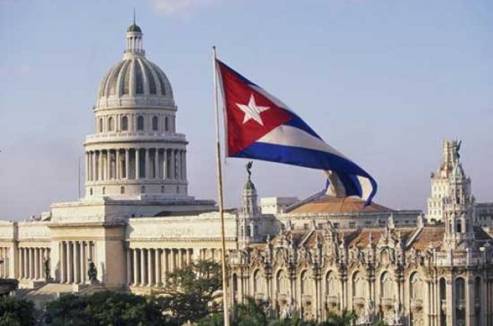
To move to Havana for permanent residence, you will need to prove your legal presence in the country. To do this, they use common emigration methods that you need to pay attention to:
- Business immigration.
- Marrying a Cuban.
- Proof of Cuban roots.
Business immigration
Immigrating for business to an island washed by the Caribbean Sea is available to any foreigner. Just recently the foreign investor program was launched and all the commotion among entrepreneurs in Russia, the USA, and Latin America happened after the adoption of Law No. 118 in 2014. It describes in detail benefits, guarantees, protection, stages of registration, taxation, working conditions, and accounting reporting.
Opening a business in a foreign country always involves risks. If the goal is “emigration”, there is a desire to settle permanently in Cuba, then this option is the most promising. This is evidenced by the following reasons:
- free market in various industries - food and light industry, construction, mining and oil sectors, tourism;
- you can create your own business or join local entrepreneurs;
- minimum investment amount is $5000;
- variety of regions - Havana, Santa Lucia, Camagüey, Bacunayagua, Matanzas.
List of documents
For Russians, visa-free entry to Cuba is allowed for one month, during which time a company is opened with all procedures carried out (registration, payment of state fees, opening an account). To apply for a business visa, contact the Embassy of Cuba, where they provide the following documents:
- a completed application form with personal information in English;
- a foreign passport valid for at least six months;
- Russian passport;
- photographs taken over the last 6 months, size 3.5 x 4.5 cm, 4 pieces;
- voucher or hotel reservation, air tickets;
- business license;
- medical insurance;
- check or receipt for payment of fees;
- tax returns;
- bank certificates of availability of funds $50 per day;
- other information upon request.
Price
You can move from Russia to start a business with a profitable project and sufficient capital. To register a legal entity you will need $4550, to open an account $5000. The consular fee will be $35 per person.
Deadlines
In terms of timing, everything is individual, if all the documents are collected, the Migration Service issues a permit in 2 weeks. Also, a foreign businessman or investor needs to provide information on how often he plans to be in Cuba - for example, permanently or on business visits. In the first option, permanent residence is issued for 1 year or longer, in the second, a multiple-entry business visa will be issued.
Marrying a Cuban
Mixed marriages between Russians and foreigners are not uncommon, many of them are carried out for the purpose of emigration, others for natural reasons. Mostly girls marry Cubans and receive a temporary resident document, then apply for permanent residence. The marriage must be legalized in accordance with local requirements, then submit documents to the Migration Service.
List of documents
To obtain permanent residence due to marriage with a local, submit:
- copies of existing passports, with the obligatory provision of originals;
- birth certificate with translation;
- Marriage certificate;
- application according to the established form;
- documentation on the availability of real estate;
- Bank statements;
- other certificates.
Price
The applicant pays a consular fee of $30-50. Translation of documents written in Russian may be required. Additional translation costs are not large, on average $5-10.
Deadlines
According to reviews, after submitting documents to the Immigration Service, you will have to wait for a response from 2 weeks to 2 months.
With proof of Cuban roots
During the Soviet period, the Cuban partnership was one of the strongest. Due to diplomatic relations, many international lawyers lived in Havana, and joint scientific research was carried out with the participation of Soviet scientists. For a long time, military bases were located on Cuban territory in order to maintain security. All USSR troops were finally withdrawn in 1991, but during that time there were cases of mixed marriages, relationships, and the birth of children. There were 12,000 Russians living on the island, many later returned to Russia, so Russian citizens with Cuban roots are not excluded.
List of documents
To prove family ties with Cubans, and to move, you need to submit documentation in the following order:
- a foreign passport with a validity period of at least 6 months;
- birth certificate;
- a document confirming family ties;
- confirmation of the financial solvency of the receiving party;
- application with personal information;
- medical certificates;
- documents upon request.
Price
The emigration fee will range from $30-110, it is paid at the Cuban Embassy in Russia, the native state, or directly at the Havana Migration Service.
Deadlines
The situation is considered on a personal basis, so the period for issuing permanent residence permits ranges from 4 weeks to 3 months.
The process of obtaining a residence permit in Cuba
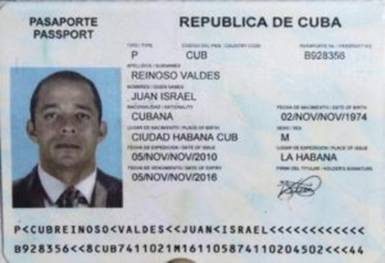
A temporary residence permit or residence permit is issued for a stay on a Caribbean island between 1 and 3 months. Reasons may be training in Spanish or English language courses, a work contract for seasonal work, or business trips.
Documents for residence permit
You can move to Cuba for a month without a visa, then find an educational institution or employer. But it must be said that these are rare situations when someone comes to study, where most of the state universities are, or to work, where salaries are lower than the world average.
To obtain a residence permit, the main package includes:
- an invitation from an educational institution or an employer;
- a certificate from the bank about financial solvency with the amount of money $50 per day;
- receipt of payment of the fee;
- birth certificate;
- certificate, recommendations from previous place of work (for employment);
- copies of diplomas with translations;
- information about the sponsor or meeting party.
Cost of residence permit
Each foreigner applying for a residence permit pays fees from $30-100. Additionally for translation of documents and their legalization upon request.
Receipt time
The entire migration process will take from 5 to 60 days. To move and receive a card with residence permit status, you must provide all documents correctly and correctly.
Validity
The validity period of the document depends on the reason for immigration. If for training, then the card is issued for the course period. The work contract is concluded for a season or for one calendar year with the right to extend.
Real estate issue
When moving to Cuba, there are two options for purchasing real estate:
As a foreigner.
If you have not found a way to obtain a residence, you can purchase real estate from foreign developers and receive it automatically. Then the housing issue will be resolved, as will all legal problems. But the price of such pleasure is at least 200 thousand dollars per apartment. And the choice of location is limited: such houses are built only in strictly designated areas.
With a residence permit.
If you have already registered a residence, then you can start purchasing any home owned by Cubans.
Prices on the secondary market are affordable and will appeal to Russians. For example, this is the spread in the capital of the country, Havana:
- small house on the very outskirts - $5,000;
- one-room apartment within the city – $15,000;
- a full-fledged house, a good apartment near the center - within $80,000;
- luxury cottage near the sea coast – $200,000.
But it is not necessary to settle in such a popular tourist place. Try to consider options in other cities. For example, Santa Clara is famous for its beautiful scenery and picturesque downtown. The cost of a great home with several bedrooms is only $30,000. The distance to the nearest beach is 100 km. Do you want to move closer to the sea? The town of Moron is located 40 km from the golden sand. For the same $30,000 you can buy a two-story cottage here with a gorgeous view. If you go deeper into the provinces, the prices become simply ridiculous.
Another popular accommodation option is renting. The monthly payment for a one-room apartment in the center of a tourist city will be about 25,000 rubles, on the outskirts - 16,000 rubles. Accordingly, for a three-room apartment – 45,000 and 23,000. Far from areas popular among tourists, prices are much lower. For 10,000 you can rent a two-room apartment quite suitable for living.
A big bonus when moving is cheap utility bills. Monthly payments for electricity, running water, house maintenance and other services will cost no more than 350 rubles for an apartment of 60 square meters. m. For obvious reasons, there is no heating.
Obtaining Cuban citizenship
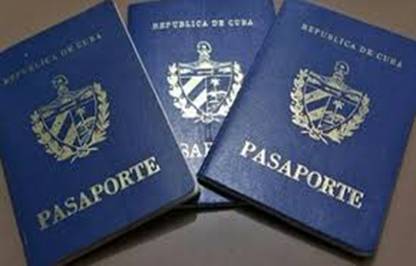
The temperate tropical climate and location near North and South America attracts many compatriots. They would like to move permanently. But today, it is not possible to obtain Cuban citizenship. Children born in Cuba and over 18 years of age, or those who have Cuban roots, can apply for relocation and a local passport. Other immigrants live only as temporary residents.
Money
The monetary system in the country is completely unusual for most residents of other countries. There are two currencies: local and for foreigners. The first is the peso. Local money is privileged. When paying in shops and for services, the owners of this currency purchase everything at completely different prices, much lower than the holders of cookies - this is how the local currency is called for foreign guests of the island.
In Cuba, American dollars are not favored, nor are Americans themselves, but they are happy to take advantage of financial assistance from relatives living in America. Tourists are advised to take currency in euros with them, preferably in cash.
The best way to exchange currency is directly at Havana airport. There are exchange points both indoors and outdoors.
Moreover, those who have been here advise changing money in smaller amounts. Tourists say that tips are expected everywhere here, even in exchange offices. Many, leaving reviews about what life is like in Cuba, indicate amounts starting from $400 in tips in different establishments of the country.
In-demand professions and salaries in Cuba for immigrants
If we consider the option of emigration as employment, then the first thing that may upset us is the salary. Since the state provides for residents by providing free education, medicine, scholarships, and food, the salaries are quite low. It is unlikely that any of the Russians, Belarusians, or Ukrainians will want to apply for jobs with salaries of $80 or $100.
For qualified immigrants, it is possible to get a job in an international school at the Embassy or in a government school as a teacher. Clinic positions may be available. For unskilled workers, there is an option to get a job in the agricultural sector to work in sugar cane.
Average salaries for in-demand professions:
- School teacher – $72
- Financier – $175.
- Doctor – from $60-84.
- Nurse – $48.
- Handyman – $20.
- Taxi driver of a rare car – $200
- Furniture Carpenter – $400
How can I get a job?

The economy of Liberty Island cannot be called large. Therefore, there are few vacancies here. A foreigner can get a job in the tourism sector. For example, Russian-speaking tour guides are in demand in Cuba. Qualified doctors and engineers can find good jobs, but knowledge of Spanish is a must.
Salary rates
The population of Cuba has low incomes. Even a big boss or businessman receives no more than $100 a month. The average worker's salary is $20. The minimum wage is $12. It seems impossible to live with such salaries. However, low salaries compensate for the wide range of free services and social subsidies. Cubans do not spend on education or medicine; they are regularly issued cards for food and essential goods. Therefore, salaries are spent mainly on entertainment or postponed.
Tax payments
Cubans pay 11 types of fiscal fees.
- Income tax is 35%.
- For housing transactions, 16% goes to the state: the buyer and seller give 8% each.
- Personal income tax is charged on a progressive scale. Those receiving up to $225 a year pay a quarter of the amount to the state. Richer citizens – half of the income.
- Almost all goods sold are subject to excise taxes and VAT.
There are also taxes on corporate profits, on the ownership of transport, the use of public services, etc.


